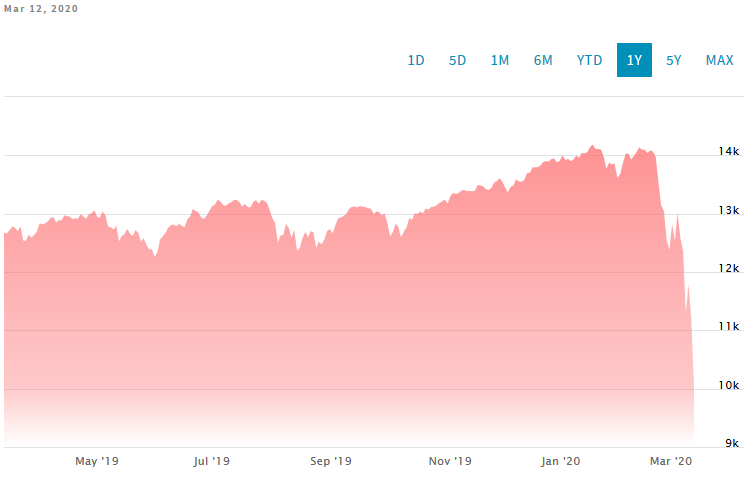I understand that the stock market is important. Even when people don't directly invest in it, they might still have pension savings which will be invested in the stock market. Returns over a 20–50 year period thus make a real difference to standards of living upon retirement.
But why should I care if the stock markets drop 10% on one day and rise 5% the day after? It's a symptom of economic uncertainty due to current events, which lead to real economic problems for some, but we already knew that, with millions of tourism jobs at risk, transportation companies (temporarily) laying off people, schools closing making it harder for some people to earn a living, and global trade affecting supply lines, all real effects affecting real people. I'm also aware of high frequency traders earning a lot of money because they receive news 5 milliseconds before others, but that is on a millisecond level, not a daily level. Yet large parts of the press seem quite focussed on daily (or even sub-daily) stock market fluctuations. Why?

